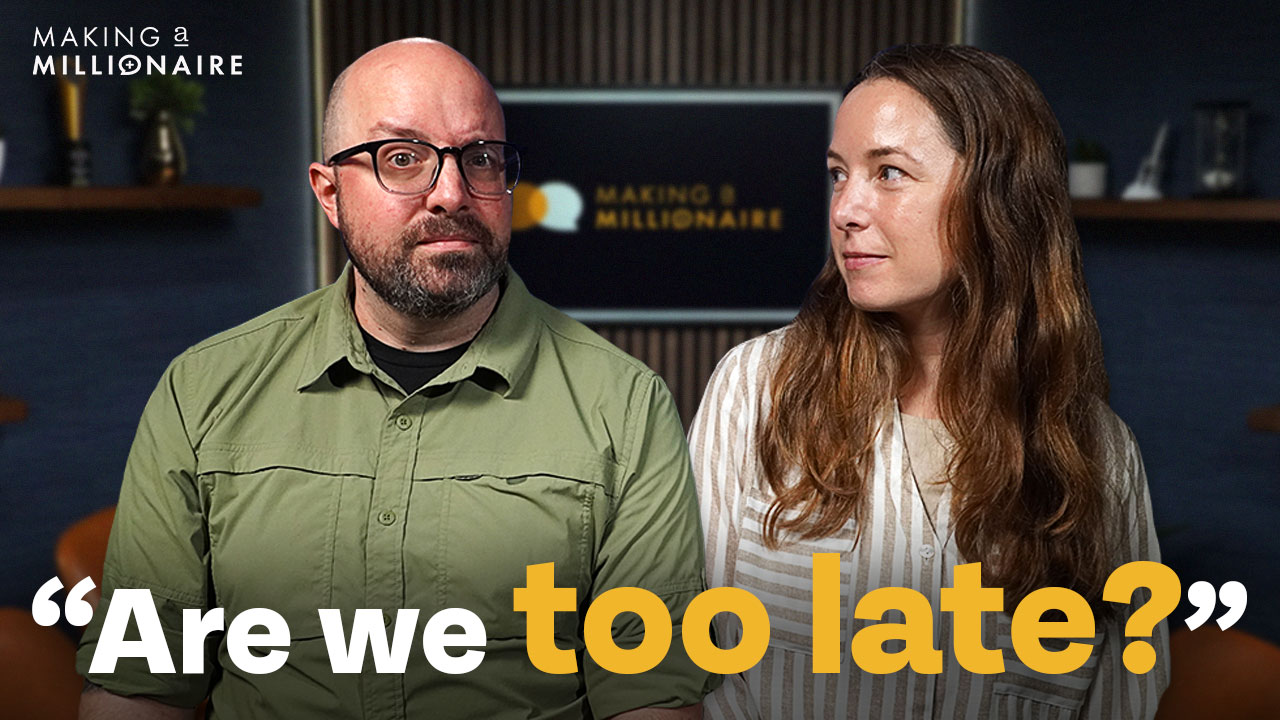Kevin says, "What housing financial advice would you have for somebody whose job can move them to a new city year after year? We have a ton of clients that fall into this camp. I'm 28, I'm married, and I have a one-year-old. Oh, now I know why I picked this question, and I'm a professional athlete in the minor leagues. Oh, that's so awesome. Oh, that's so cool."
"Um, so this question is, you know, I have a job where at any given moment I could be, I could, you know, change where I need to be living. I could have to move from one place to another place. So how do I go about thinking about housing? How do I approach that in a financial mutant way?"
"Well, I'll set it up, but I'd love you because to start this off, because you kind of resemble some of these things and know people who resemble some of these things. But Kevin, first of all, go to
moneyguy.com/resources. We actually have guides as well as checklists on housing purchases, and I think that could be a tremendous value for you to download that free resource."
"But Bo, you kind of, you know people, or you've resembled some of these things, and this is starting to sound very much like a messy middle situation. It's super because here you are. You're like, 'Okay, I'm married and I have a child,' and so I want to set roots, but because of my vocation, I'm unable to set roots."
"Now, I'm going to go on a limb here. I'm going to say it's okay if you don't buy a house because when you go to
moneyguy.com/resources and you download our
house buying checklist, one of the very first things you're going to see is that when it comes time to buy a house, can you answer this question: 'Yes, I believe I'm going to be here for at least 5 to seven years.' If your answer to that question is not 'Yes,' I would argue that home ownership might not make sense for you where you are in your current state."
"Because what you don't want is to get in a position where, let's assume that the real estate prices have gone up really high right now, and it's expensive. So you try to buy a house, and maybe you're playing for a team or you're playing in a city that's a really high cost of living. So you buy that, and then you get traded or you have to move somewhere else or you get relocated, you get called up, or whatever the thing is. And then you have to move to a different area. Well, now you've either got to turn that expensive house into rental property or you have to sell it."
"What if something like 2020 happens? What if we go through a COVID situation? What if we go through a 2008 Great Recession, and all of a sudden you can't sell that piece of real estate? Now you are captivated; you are held there. So I think for someone in your situation, I think it's okay to be a renter. A lot of people operate under the assumption that when I'm renting, I'm just throwing money away. I think that is a false premise. You mentioned Ramit earlier today. Ramit talks about this all the time. Renting is not throwing money away; it is buying flexibility; it is buying freedom because all you're committing to when you have a rental is for the term of that rental engagement. So I'm going to be here for a year; I'm going to be here for a year; I'm going to be here for a year, whatever that thing may be. So that at the end of that term, you know you can move, and you can leave. There is no problem with doing that."
"Now, this is what I would encourage you to think about because my wife and I had to navigate the same thing when we changed locations. We sold our house in Georgia. We knew that we were not going to buy immediately in Tennessee because we wanted to figure out the lay of the land. And we had a few options. We could rent a nice place, like the tippity-top super fancy swanky apartments, or we could go for something that was nice and decent. And I told her, 'I love that they have all the amenities and all the creature comforts, but instead of us experiencing that and getting to do that for a year, why don't we spend a little bit less on rent, something that still makes sense for us, and let's save that additional so that when we buy the house, then we can buy the things that we actually care about. Then we can focus on that.'"
"So I would argue one of the things you can do while you're in this very mobile stage of life is consider doing very reasonable housing so that you can stack up as much money as possible. So that when you do know that you have roots somewhere, you have a base of assets you'll be able to use to make that down payment to capitalize on that opportunity. You agree with all that?"
"You know, I think that's great, and I love that you even gave the additional clarification, like when you relocated up to Tennessee, your place was nice, by the way. But it's just that so many things now promote a lifestyle with the gyms, the classes, the Peloton classes, the access, and you have to just ask yourself, are you actually going to use that Country Club atmosphere at that apartment complex, or do you just need a nice place to live and just be a good financial mutant with your decision-making?"
"And then, Kevin, you know, also when you get the big contract, say when you sign the big one, hey, don't forget the abundance cycle. We'll be waiting for you."













